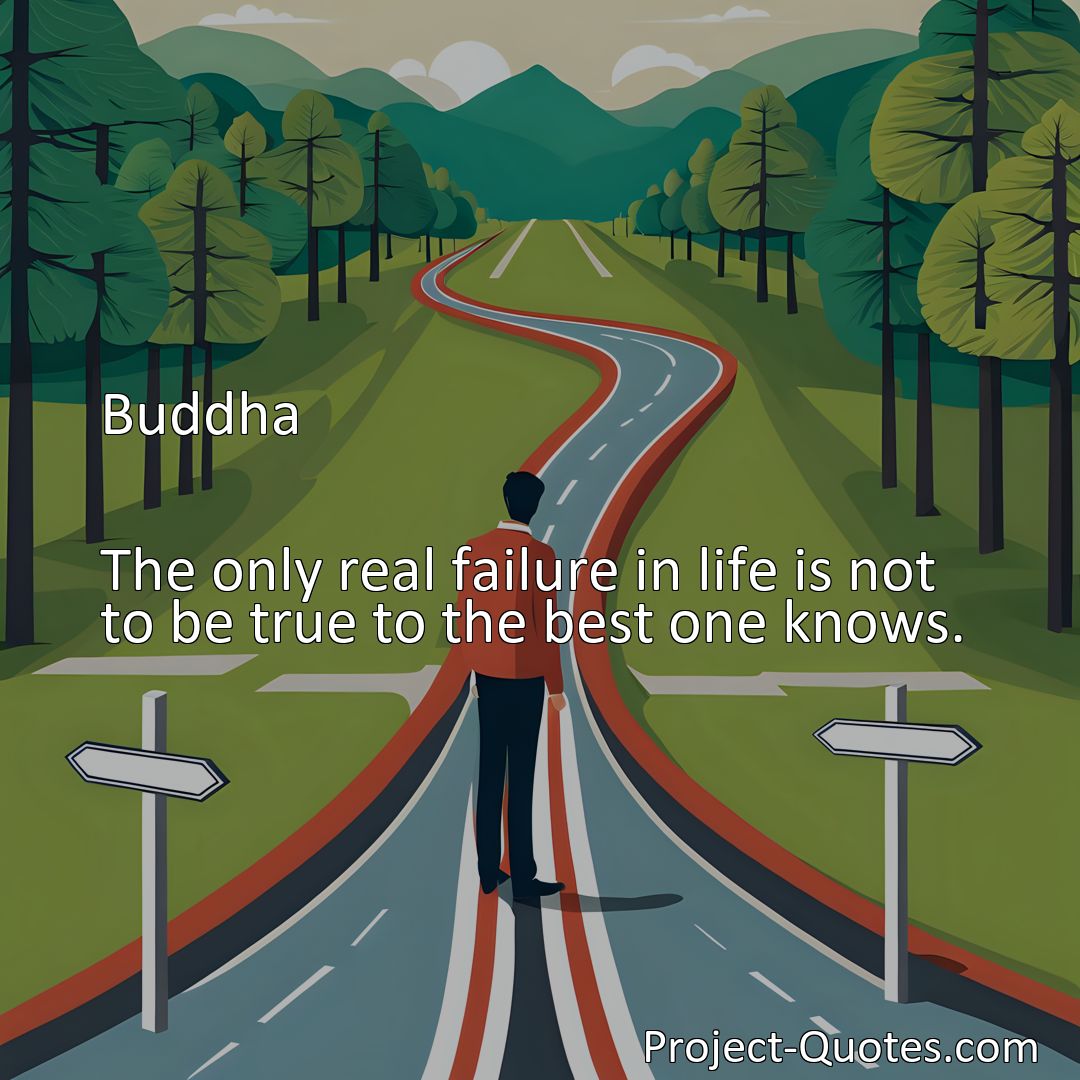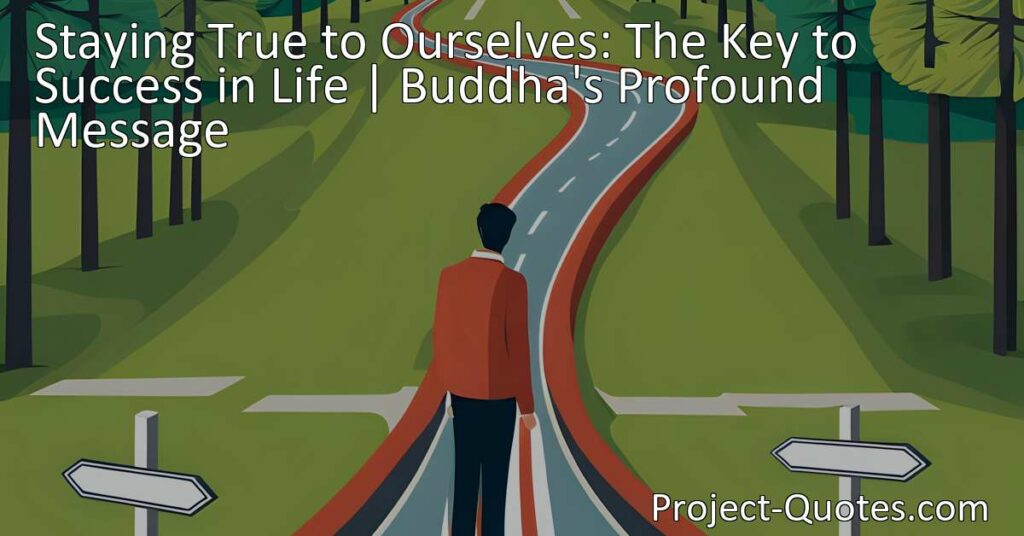The only real failure in life is not to be true to the best one knows.
Buddha
Staying true to ourselves is the key to success in life. This means listening to our inner voice, making decisions aligned with our values, and not succumbing to societal pressures. By staying true to what we know and believe, we can live authentically and find fulfillment and happiness in our lives.
Table of Contents
Meaning of Quote – The only real failure in life is not to be true to the best one knows.
In life, we often strive for success and avoid failure at all costs. But what if I told you that failure itself is not what we should fear the most? Instead, it is the failure to be true to ourselves, to our values, and to what we know deep down is right. This quote by Buddha holds a profound message: “The only real failure in life is not to be true to the best one knows.” Let’s dissect this idea and explore how staying true to our knowledge and beliefs is essential for living a fulfilling and authentic life.
Firstly, it’s important to understand what it means to be true to ourselves. Being true to oneself means having the courage to listen to our inner voice, to our intuition, and to make decisions that align with our values and principles. It means not succumbing to societal pressures or conforming to others’ expectations. This genuine expression of ourselves allows us to live authentically, leading to greater happiness and personal fulfillment.
Often, we are tempted to succumb to external influences and compromise our core principles in pursuit of success or acceptance. However, this quote emphasizes that true failure lies not in external factors but in our own inability to remain true to what we know is right. A person who compromises their integrity or betrays their values for temporary gain may achieve worldly success, but deep down, they will always feel a sense of hollowness and dissatisfaction.
For instance, imagine a student who copies another student’s homework instead of putting in the effort to learn and complete the assignment themselves. They may receive a good grade, but they are depriving themselves of the opportunity to grow intellectually and develop important skills. In the long run, they may face more significant failures because they haven’t built a strong foundation of knowledge. This example highlights the idea that taking shortcuts or compromising our values might lead to immediate success, but it ultimately prevents us from reaching our full potential.
In addition, the quote emphasizes that the true failure is not being true to the best we know. This suggests that knowledge plays a crucial role in determining our success or failure. Knowledge is not confined to what we learn in schools or read in books; it encompasses our experiences, self-reflection, and personal growth. The “best” we know refers to our understanding of ourselves, our values, and the world around us. It is the wisdom gained through learning from our mistakes, acquiring new skills, and reflecting on our actions.
When we have knowledge, we have the power to make informed decisions, to learn from our failures, and to adapt our behaviors accordingly. Life is a continuous journey of learning, and the only way to grow is by being receptive to new knowledge and staying true to what we have already learned. With knowledge comes the responsibility to use it wisely and not let our ignorance or fear cloud our judgment.
Moreover, being true to what we know also requires self-reflection and the ability to acknowledge our limitations and biases. Nobody is perfect, and we all have our blind spots. However, by being honest about our weaknesses and open to learning from others, we can expand our understanding and make more informed choices.
In relationships, being true to what we know might mean setting healthy boundaries and not compromising our values for the sake of pleasing others. It means being honest and authentic in our interactions, even if it means risking conflict or vulnerability. By being true to ourselves, we attract authentic connections and build relationships that are based on trust and mutual respect.
Similarly, in professional settings, being true to what we know involves staying committed to our work ethics and standing up for what we believe is right, even in the face of opposition. It means not compromising our integrity for the sake of career advancement or financial gain. While taking shortcuts or engaging in unethical practices might bring short-term success, it erodes our credibility and jeopardizes long-term achievements. Staying true to our knowledge and principles sets a solid foundation for lasting success and personal satisfaction.
In conclusion, the quote “The only real failure in life is not to be true to the best one knows” reminds us of the importance of staying true to ourselves and our values. It indicates that true failure lies not in external circumstances but in our own lack of authenticity and integrity. By being true to what we know, we make informed decisions, learn from our mistakes, and build a foundation for personal and professional growth. So let us strive to be true to ourselves, listen to our inner voice, and live our lives in alignment with what we know is right.
I hope this quote inspired image brings you hope and peace. Share it with someone who needs it today!


